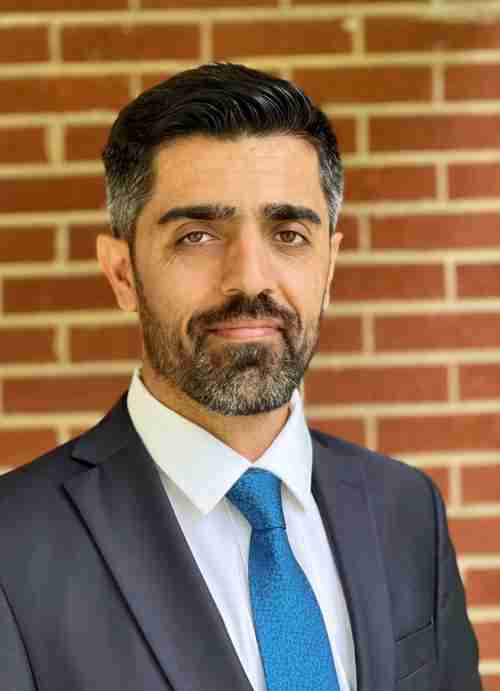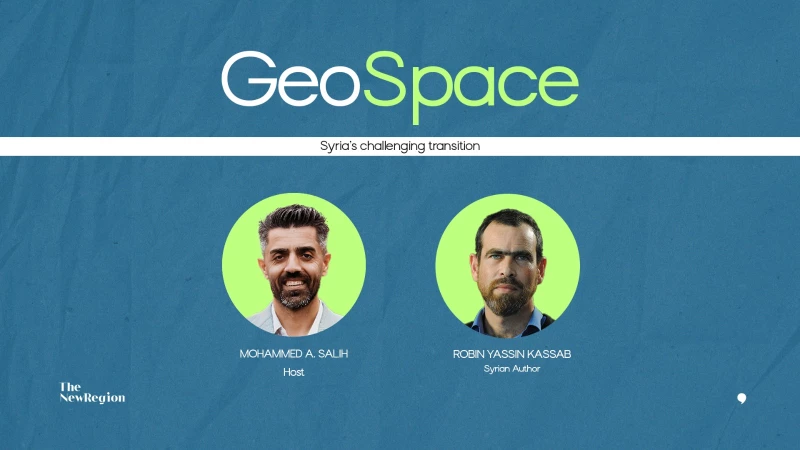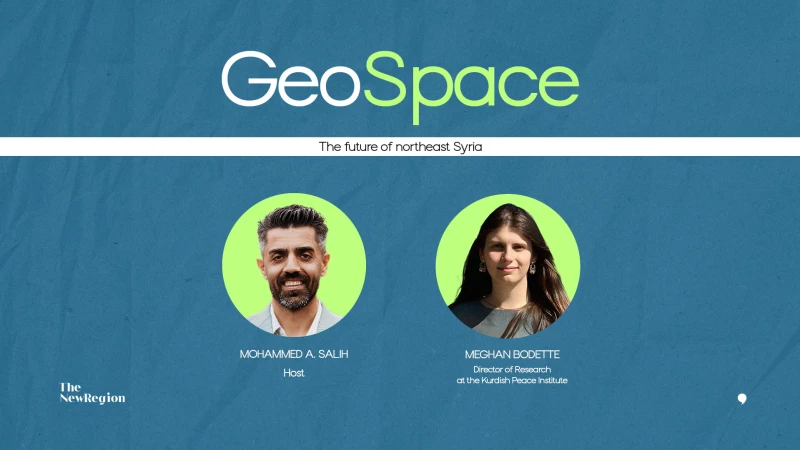In the latest episode of The New Region’s GeoSpace series, host Mohammed A. Salih and Wladimir van Wilgenburg, an expert on Syrian-Kurdish affairs, discussed the rising tensions between Syrian Kurds and Damascus, as well as the prospect of adopting a decentralized system in the new Syrian government.
Northeastern Syria (Rojava) has recently seen heightened hostilities between the Kurdish-led forces and Damascus-affiliated forces, with both sides engaging in numerous armed confrontations since the rise of Syria’s President Ahmed al-Sharaa to power, and each accusing the other party of being the instigator.
The March 10 agreement, signed by Syrian Democratic Forces (SDF) chief Mazloum Abdi and Sharaa, stipulates the integration of Kurdish-led forces and institutions into the broader Syrian state apparatus.
Regarding the first Syrian parliamentary elections since the ousting of Bashar al-Assad, Wilgenburg asserted that the decision to exclude Kurdish and Druze-held areas creates “a lot of distrust” among minorities towards Damascus, labeling the process “not very representative of the Syrian population.”
Despite numerous attempts to sign a ceasefire and end the attacks, most prominently on March 10, the expert argued that due to differences in governance styles, the Rojava administration demanding decentralization and Damascus viewing that prospect as an attempt to “divide Syria,” clashes would continue to erupt, adding that there’s a heightened “distrust” between the two sides.
An aspect that has rendered the situation “more complicated,” according to Wilgenburg, was the rebranding of the Turkey-backed Syrian National Army (SNA) into the new Syrian army, which had committed various acts of “violations against the Kurdish population,” most prominently in Afrin, that displaced hundreds of thousands of native Kurdish residents.
The expert argued that Damascus has a problem with “the credibility” SDF has within the Kurdish population.
“There's always this thing in the states where Kurds live, that they always say, we don't have a problem with the Kurds, we have a problem with the Kurdish political party,” he stated, adding that the state’s actual problem is with Kurds demanding “any form of self-governance.”
He also noted that Sharaa’s choice in not changing the country’s title of “Syrian Arab Republic” solidifies the minorities’ “distrust” in the government, also citing cases of human rights violations against various non-Arab components in Syria, lamenting that Damascus has not made significant efforts to address the acts or condemn them.
Since Sharaa took office in early 2025, minority communities, including Kurds, Druze, Alawites, and Christians, have expressed growing concern about their future under his government.
The Rojava administration has continuously advocated for a decentralized government system that represents different ethnic, religious, and gender components in Syria.
The US-backed SDF functions as the de facto army of northeast Syria and played a key role in the territorial defeat of the Islamic State (ISIS) in Syria in 2019.


 Facebook
Facebook
 LinkedIn
LinkedIn
 Telegram
Telegram
 X
X


